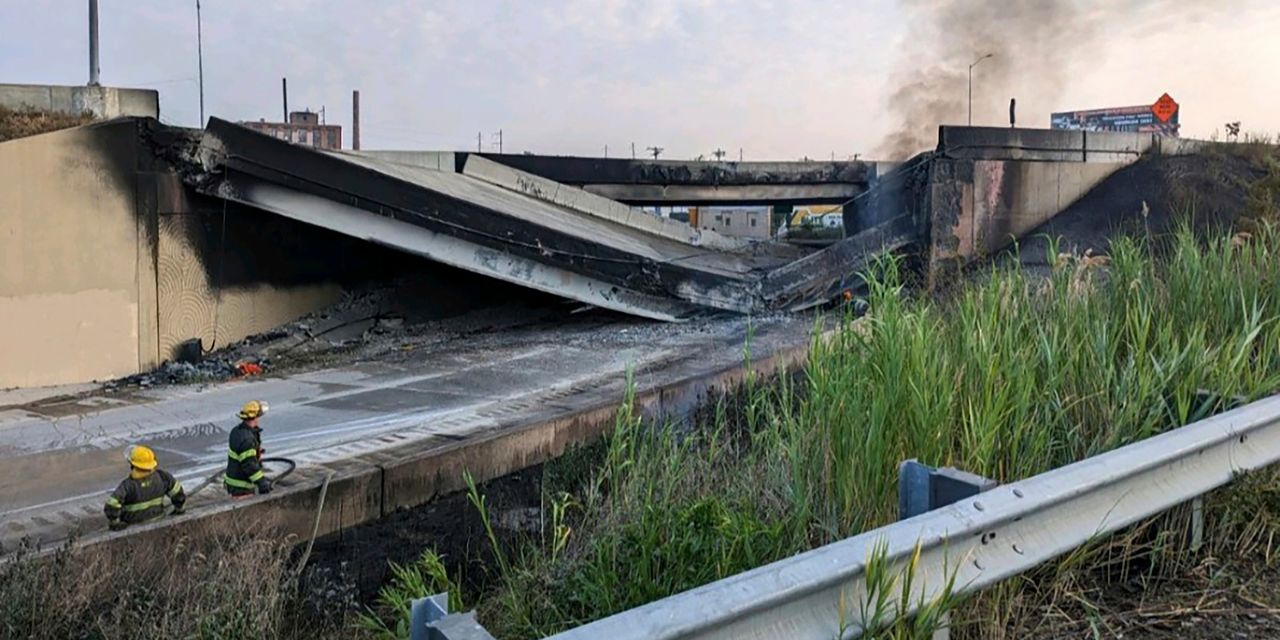The collapse of an elevated section of Interstate 95 in Philadelphia has highlighted the importance of mapping and navigations group Waze Inc. to the U.S. road network.
Several lanes of I-95, a key highway that stretches from Miami to Maine, collapsed Sunday after a tanker truck caught fire underneath an overpass. A body was recovered from the wreckage on Monday.
The collapse has resulted in the closure of a stretch of the highway, which carries on average 160,000 vehicles per day, around 8% of which are trucks.
Related: I-95 collapse could impact retailers’ holiday season plans and freight rates, experts warn
Waze, which was acquired by Alphabet Inc.’s
GOOGL,
GOOG,
Google in 2013, has been working with the Pennsylvania Department of Transportation for a number of years, with the department joining the Waze for Cities public partnership program in 2015. Waze for Cities is described as a zero-cost two-way data exchange for public-sector agencies that aims to reduce traffic and inform infrastructure decisions.
PennDOT provides Waze with a real-time feed of alerts and road-closure information. Thanks to that feed, Waze was able to quickly make authoritative updates to its map as the disaster unfolded, MarketWatch has learned. The first closures were posted in the feed by 6:40 a.m. Eastern time on Sunday and appeared on the Waze map minutes later. Waze’s local Map Editor Community of volunteers who update the Waze map in real time added additional details in the hours that followed. And as PennDOT develops a response to the collapse, Waze is working with the agency to keep the Waze Map updated with street-configuration or direction changes.
Speaking at a press conference at the collapse site Monday, U.S. Transportation Secretary Pete Buttigieg discussed the importance of Google and Waze in the wake of the I-95 section collapse. “There’s going to be a lot of work, analysis and support going into making sure that we make the most of alternative routes,” he said. “We’re even making contact with Google and Waze to try to optimize any kind of software information that is reaching drivers, whether it’s commuters, travelers or truckers.”
Related: After Philadelphia I-95 collapse, Buttigieg weighs supply chain, economic impact: ‘That is a lot of America’s GDP moving along that road’
Waze works with a number of U.S. public agencies, including the California and Florida transportation departments, which provide feeds to keep Waze users informed about the latest road conditions and out of harm’s way. Waze, for example, was able to harness data from the Florida Department of Transportation during Hurricane Ian last year.
Logistics experts have warned that the disruption caused by the I-95 collapse could have widespread implications.
At Monday’s press conference, Buttigieg described the impact on supply chains in the region. “Part of what goes into the cost of everything that we pay for in the store is the cost of shipping, and if a route is disrupted, or if it’s longer, or if trucks have to wait, that finds its way into the cost of goods,” he said.
Related: I-95 collapse may snarl traffic for months. But a media legend was born.
In response to a reporter’s question, Buttigieg acknowledged that the disaster could push prices for goods up. “It’s one of many, many factors that can affect the cost of shipping, but, here on the East Coast, there’s no question that the effect will be upward pressure until it can be completely resolved,” he said.
Read the full article here





